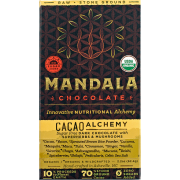Pedicularis Canadensis
Pedicularis Canadensis
This is one of the plants certified organic for the first time in history by Mandala Chocolate. It is known by a large variety of different common names including Wood Betony, Beefsteak Plant, Canadian Lousewort, High Heal-all, Snaffles and Canada Lousewort, Common Lousewort, lousewort, Betony, Early lousewort, Canada wood betony, Early Wood Lousewort and Head betony.
It has been loved and utilized traditionally by native peoples for untold generations who ate it as a vegetable crop, a salad green and utilized it as a multipurpose medicine. Its uses included stomachaches, diarrhea, anemia and heart trouble and made a poultice for swellings, tumors and sore muscles. As a nervine and non-narcotic muscle relaxer pedicularis is regaining the attention it deserves. It can help relieve pain in muscles when applied topically or taken as a tincture.

